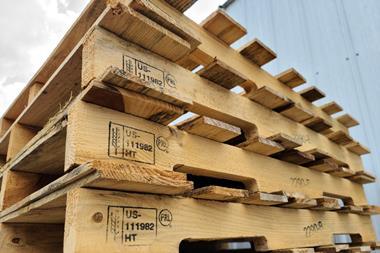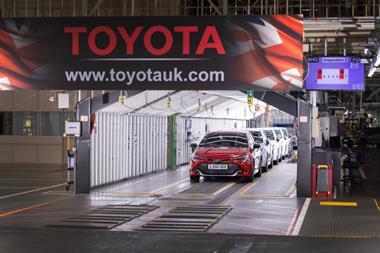 Just a week after the formal renegotiation of the North American Free Trade Agreement (Nafta) began, US president Donald Trump has suggested the US is likely to pull out of the arrangement.
Just a week after the formal renegotiation of the North American Free Trade Agreement (Nafta) began, US president Donald Trump has suggested the US is likely to pull out of the arrangement.
Speaking after the first round of talks about the two-decade-plus accord that many carmakers’ supply chains currently rely on, Trump said he did not think a satisfactory deal could be negotiated and that the US would ‘probably’ withdraw from it.
“Personally, I don’t think we can make a deal, because we have been so badly taken advantage of. They have made such great deals, both of the countries but particularly Mexico, that I don’t think we can make a deal,” said Trump in a speech to his supporters in Phoenix, Arizona.
The move is a surprise given the softer tone the US administration has taken about the agreement in recent months, which suggested the US would seek updates to the trade agreement, given its age, rather than any drastic changes.
At the recent Finished Vehicle Logistics Import Export summit in Baltimore, the president and chief executive officer of the US-Mexico Chamber of Commerce, Al Zapanta – who played a key role in drafting the Nafta agreement in the 1980s – suggested there would be no damaging changes to the agreement in terms of either tariffs or complex rules of origin rules.
Speaking at the opening session of the summit and repeating testimony he made in July to the Office of the US Trade Representative, Zapanta highlighted the benefits of the arrangement since its inception in 1994 and said renegotiating the agreement had the potential to benefit everyone involved, including in terms of automotive trade and security.
In February, meanwhile, about a month into Trump’s presidency, Zapanta told delegates at the Automotive Logistics Mexico conference he thought Trump’s threats of taxes and tariffs were just a negotiating ploy.
However, United States Trade Representative Robert Lighthizer took a tougher line, calling for major changes to the agreement ahead of the first round of talks last week.
Suggesting Trump was “not interested in a mere tweaking of a few provisions and a couple of updated chapters”, Lighthizer said: “We feel that Nafta has fundamentally failed many, many Americans and needs major improvement.”
After five days of meetings by teams of experts from each country, a joint statement on August 20th said the parties were committed to an “accelerated and comprehensive” negotiation process to upgrade the agreement.
“The scope and volume of proposals during the first round of the negotiation reflects a commitment from all three countries to an ambitious outcome and reaffirms the importance of updating the rules governing the world’s largest free trade area,” said the three countries in the joint statement.
Negotiators from each country will continue domestic consultations and work to advance negotiating text through to the end of August. The second round of talks will take place in Mexico at the start of September, with the third beginning in Canada towards the end of next month.

































